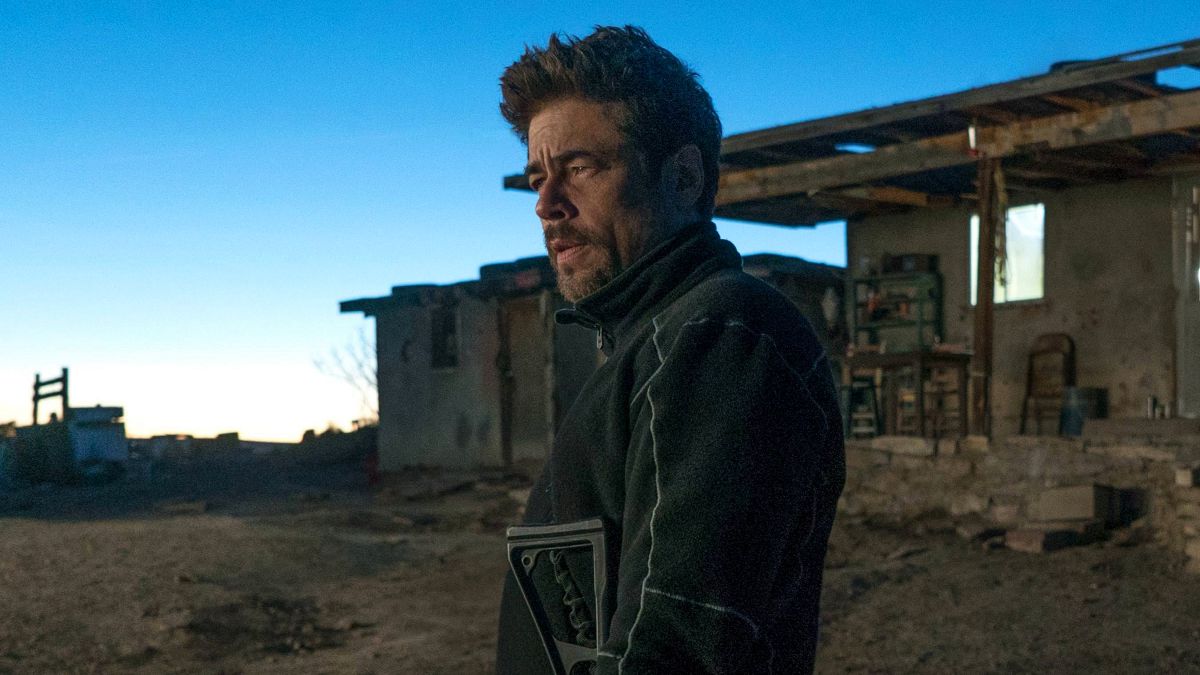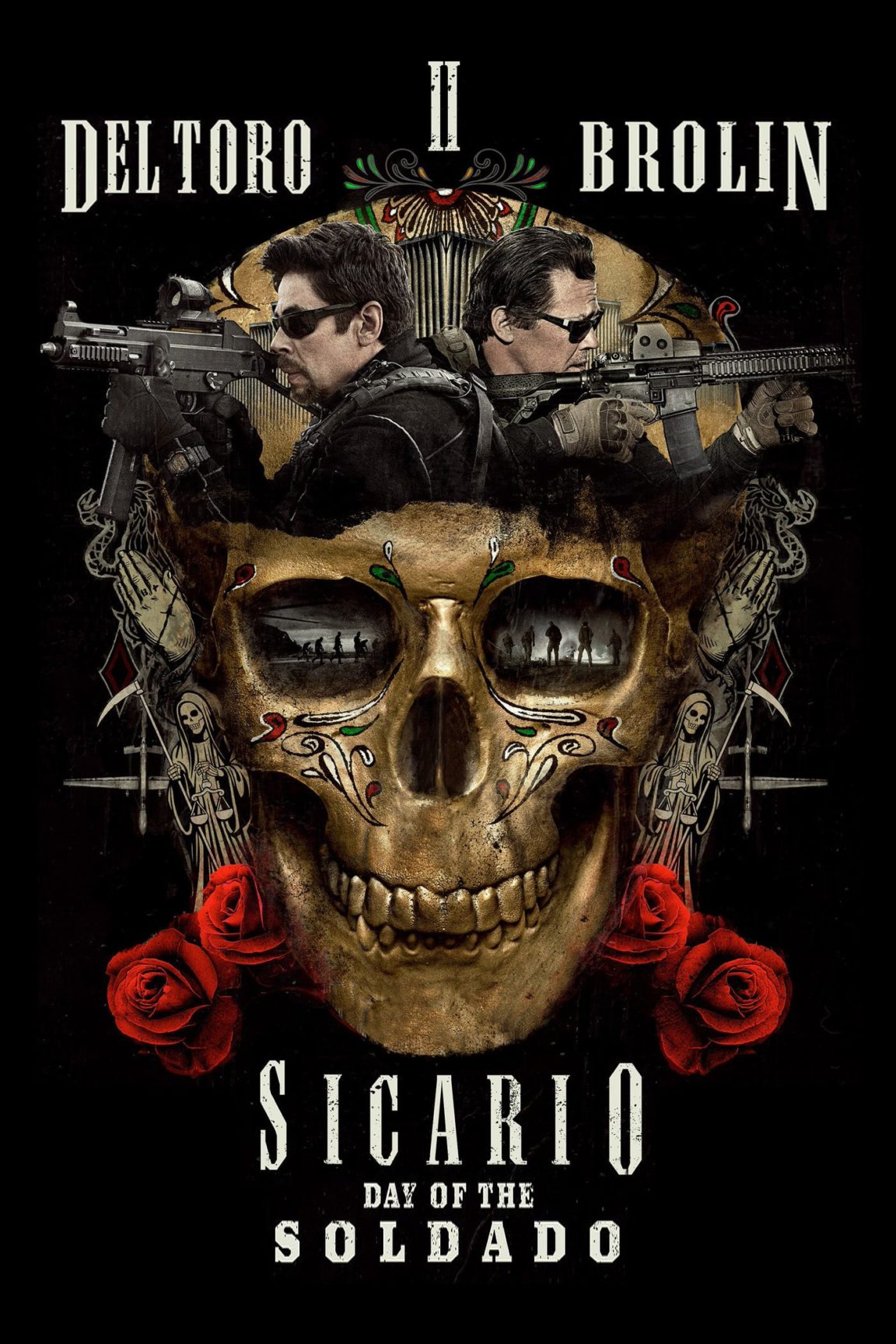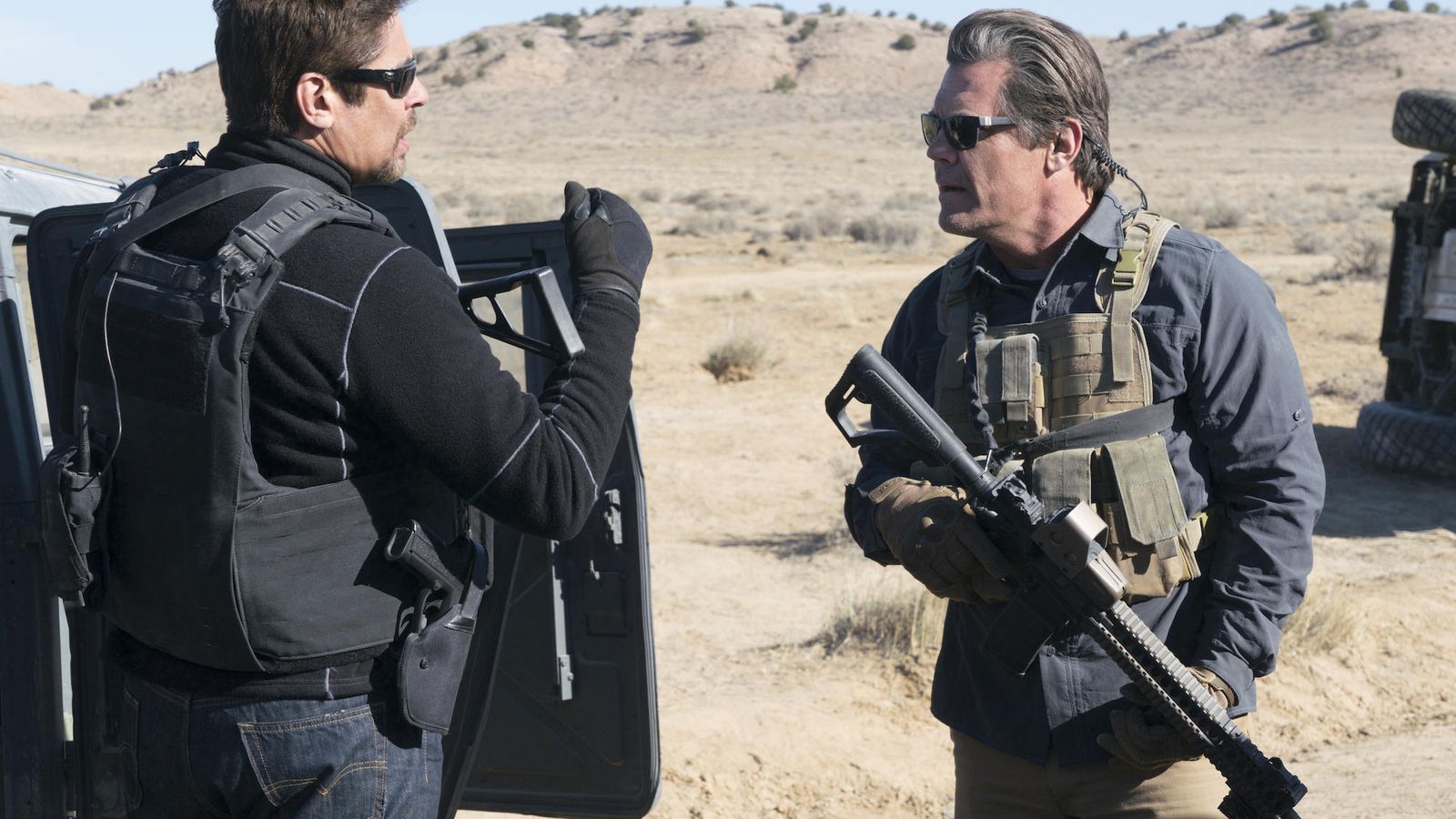
Back in 2015, Sicario was released to widespread critical acclaim. Its stunning cinematography, bleak tone, tense plot, and compelling themes made it a soon to be classic. Emily Blunt’s character, Kate, an idealistic FBI agent has her physical, ethical, and emotional boundaries tested as she enters a world of spies and drug cartels. Does the sequel live up to the merits of the original? And how does it address the ever-changing world we now live in?
Absence of Emily Blunt
Part of what made the first film so appealing was that Kate (Emily Blunt) served as the audience’s surrogate in the story. We, like her, were shocked to see just how rampant corruption ran and how far gone the world was from what we all expected. However, the fact that she chose not to return for this sequel gave some fans pause. Given how things ended in the first film, it’s no surprise her character would want nothing to do with any of this anymore. And the move does offer a unique chance to focus more on CIA Agent Matt (Josh Brolin) and “Sicario” Alejandro (Benicio Del Toro), who were only supporting roles in the original. And for the most part, it works.
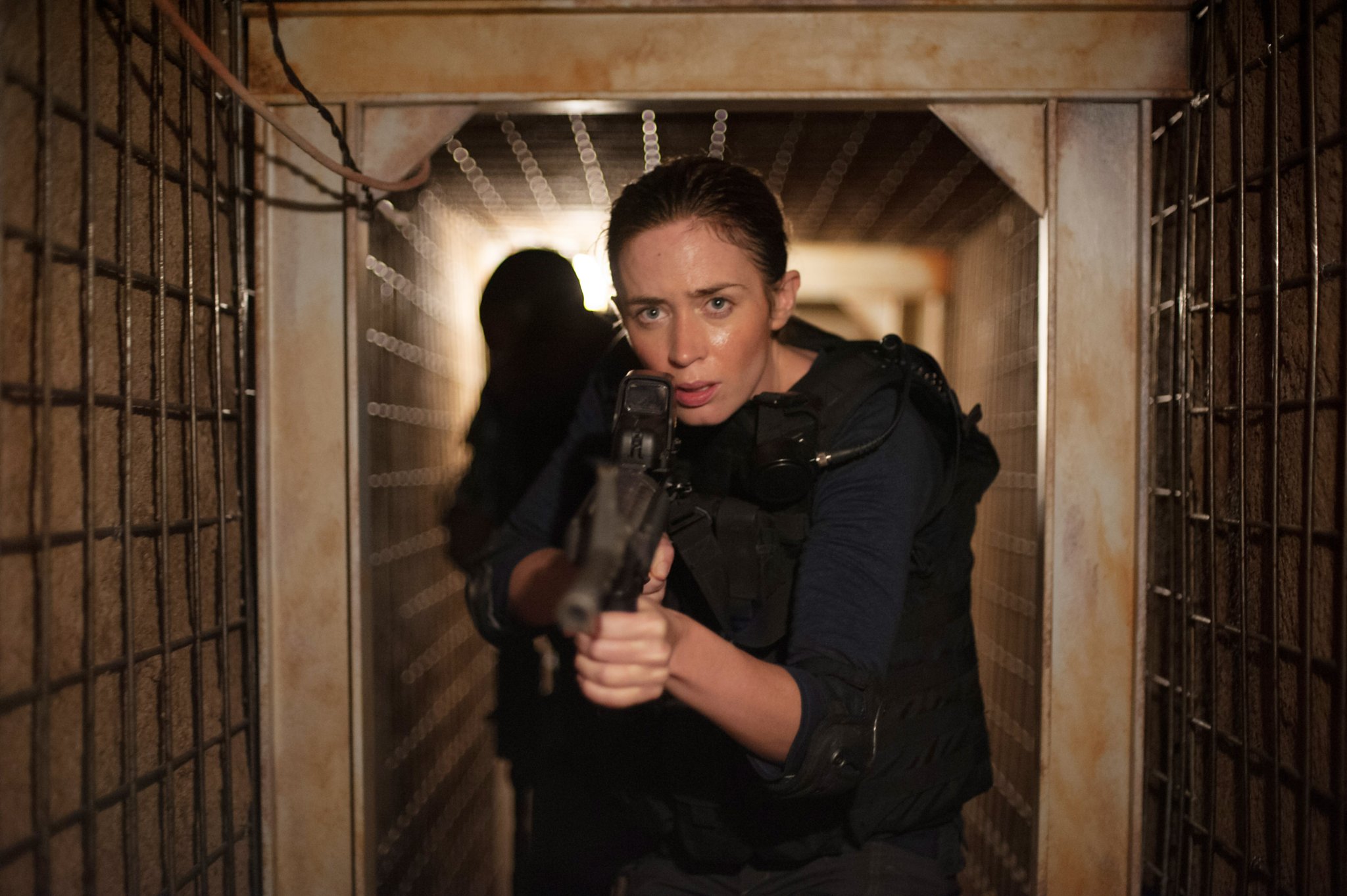
More Spinoff Than Sequel
Much like a series of detective novels, Day of the Soldado is less of a direct sequel to the original Sicario than it is merely another case for Matt and Alejandro. The film opens with a border crossing and a series of suicide bombings by what we presume to be ISIS or groups affiliated with them. As a response, the myriad of Mexican cartels are placed on the official list of terrorist organizations, and the Secretary of Defense tasks the CIA (specifically Matt) to start a war among them. Their thinking is that if the cartels are feuding with each other, it will be easier to defeat them. Matt enlists his old Sicario operative Alejandro and what follows is another gritty, morally gray, Machiavellian “ends-justify-the-means” exercise in espionage. However it also demonstrates how dangerous this type of thinking can be. It doesn’t take long for their plan to go completely awry and for chaos to ensue, all caused by their self-righteous/justified actions.
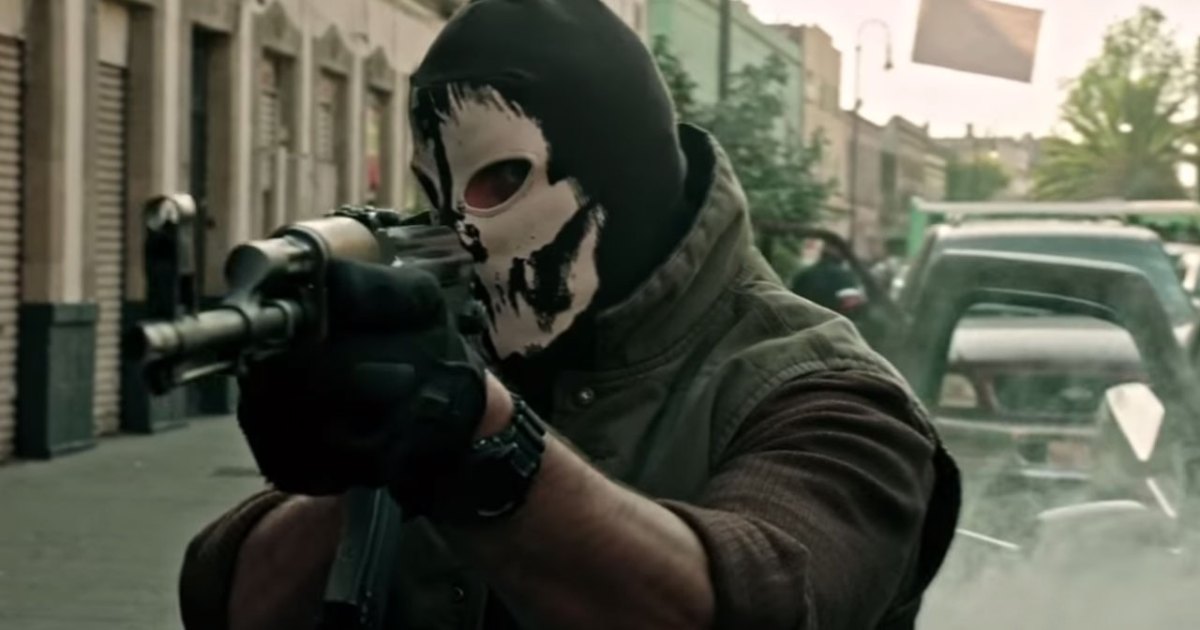
More Surreal Than Realistic
Despite the fact that the director, cinematographer, and composer didn’t return from the first film, this one still does an impressive job in all three areas. It’s beautifully shot, well directed and acted, and the music is dark and tense. Stylistically, it hits most of the same marks as the first one, but in a strange way, it feels much less rooted in reality. As previously mentioned, having a protagonist like Kate helped Sicario seem all the more realistic to the audience. It was a simpler plot that involved going after a specific cartel that was responsible for the grotesque collection of bodies found at the beginning. This film on the other hand, is much larger in scale, involving international terrorism, cartel wars, and the Secretary of Defense himself. It’s much less a quiet crime thriller and more an explosive action drama. The violence is less realistic and all the more brutal and surreal.

Does It Send the Wrong Message?
When the first film was released in 2015, the landscape was quite different. The sad fact is current relations between the United States and Mexico are complicated, to say the least, specifically in reference to the border. While the ultimate goal of the film is merely to create a gripping and entertaining story, it does run the risk of projecting a false narrative. The inciting incident of the film involves the cartels smuggling jihadist terrorists across the border who are then responsible for a suicide bombing at a department store. It’s a dangerous idea because it’s something that both the current President and Congress have been using to justify things like a border wall, and the mass abduction/deportation of suspected immigrants, many of them children.
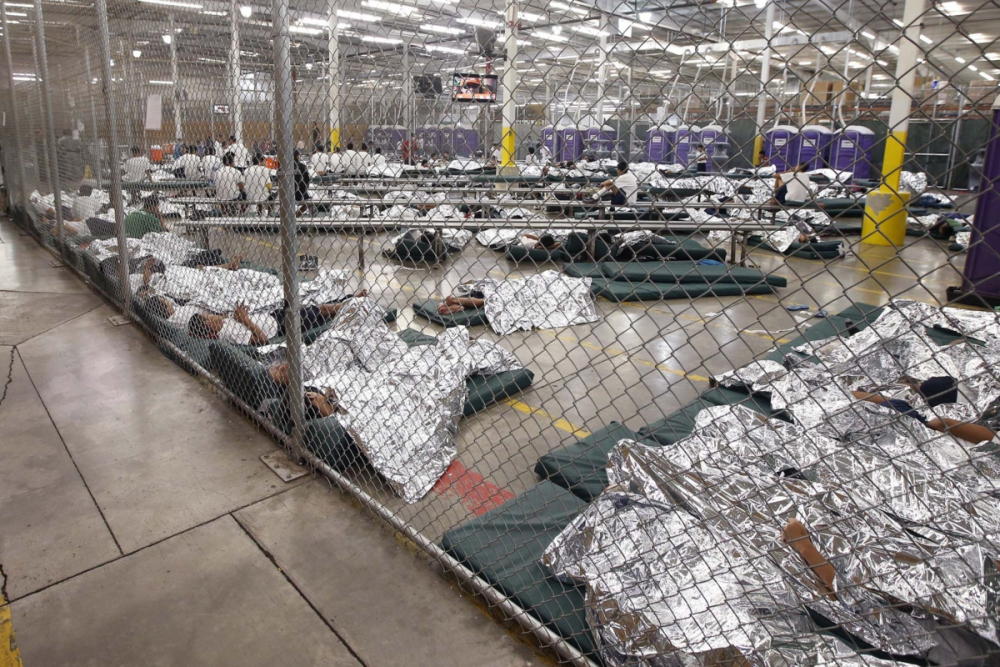
While Mexicans across the country are being placed into these “tent cities”, which resemble modern day internment camps, this film potentially reinforces the very justification for it. All the while, there has been zero real life evidence to suggest that terror groups like ISIS utilize the US-Mexico border to cross into our country and commit terrorism. While the film does later reveal that most of the bombers were in fact US citizens from New Jersey, the damage may already be done. And perhaps it’s irresponsible for a film to do this for the sake of entertainment. To be fair however, the film was announced in 2015, and shot in 2016-2017, long before all the recent activity that’s been dominating the headlines.
Overall, it’s still an enjoyable and tense action drama/crime thriller. Benicio Del Toro spent much of the original shrouded in mystery and he truly shines in this. Through brilliant acting and subtleties, we learn a great deal more about his character and back story. For a sequel, it does an impressive job of holding its own. And due to the spinoff nature of the plot, audiences could watch this film without having seen the first and not feel lost.
